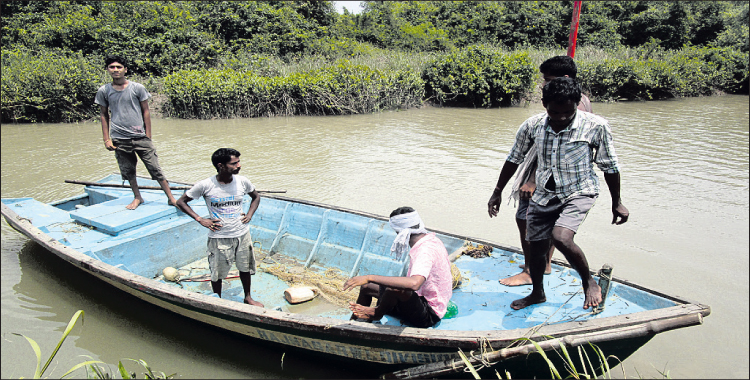Kendrapara: Pacu fish cultivation, illegal installations of fish gherries (encircling gillnets) and shrimp enclosures are posing a threat to the natural habitat of Odisha’s Bhitarkanika National Park, several environmentalists have suggested.
According to environmentalist Ashok Kumar Samal, for the past five years, Pacu fish —locally known as Roopchandi fish — cultivation has been growing in the reserve forest area.
“Ecological balance is being affected due to Pacu fish farming in the nullahs and ponds within the reserve forest of the national park,” he added.
Samal further stated that dense forest, animals and seaside environment attract tourists from all over the country and abroad to the national park. In addition, creatures such as Olive Ridley turtles, crocodiles and dolphins are the main focus of attention for nature lovers. However, the forest area has been gradually going under the control of fish traders amid increasing numbers of shrimp enclosures and the Pacu fish cultivation.
“Many public interest litigations were filed in Orissa High Court from time to time for the protection of Bhitarkanika. Later, much emphasis was given to the eviction of illegal shrimp enclosures within its periphery. Mohit Agarwal has been appointed by the High Court as Amicus Curiae to protect Bhitarkanika’s environment. Despite this, the number of fish enclosures has increased,” social activist Pratap Padhi said.
Meanwhile, Environmentalist Prabhuprasad Mohapatra claimed that the forest land within the national park has become a source of vote bank for local politicians. People have been encroaching the land, cultivating fish, hunting animals, and destroying trees. He expressed that if the infiltrators were not stopped, wild animals and fishes would be rendered homeless.
On the other hand, Forest ranger Pradosh Maharana said, “Free entry to Bhitarkanika has been prohibited. The shrimp enclosures here are being demolished with the help of the district administration.”
Maharana added that he did not know about the cultivation of Pacu fish and said an inquiry would be conducted into it.
Pacu fish is a common name used to refer to several species of omnivorous South American freshwater serrasalmid fish related to piranhas. Zoological researcher Devi Prasad Sahu said these fish can consume a large bovine carcass in a matter of few minutes. They are also known to prey upon other species posing a threat to the environment.
PNN
